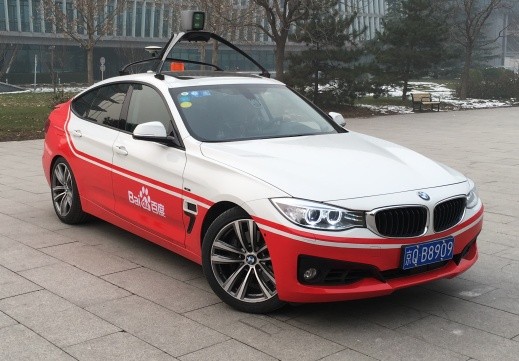A self-driving car of the Chinese web services company Baidu has completed road tests in Beijing. The modified BMW 3-Series rolled along as the nation's first-ever fully autonomous vehicle as it maneuvered throughout the capital city's side streets and busy highways. Like Google's driverless car Baidu's new vehicle was able to make left and right turns, complete U-Turns, change lanes, and pass other automobiles.
Baidu's self-driving vehicle was also able to merge onto and off a highway. The road test was a key event for China's auto industry, and shows that the company could develop the world's first fully self-driving car.
In addition, Baidu and BMW kept their June promise to launch a driverless vehicle this year, according to Wired. The "Chinese Google" company started the smart car project in 2013.
Some companies are working on vehicles' level of autonomy. However, Baidu is taking the approach of developing levels of environment, such as starting with autonomous buses that always take the same route.
For example, the smart bus would have pre-loaded data including the location of curbs, the words on traffic signs, and the heights of traffic lights. The vehicle could then focus on short-term obstacles such as other vehicles and people crossing streets.
Google's different plan is for its first car on the market to be fully autonomous. However, both companies are now mapping their home countries' roads. Baidu has projected that most of China's roads could be mapped in detail within 5 to 10 years.
In other autonomous car news, Samsung announced on December 9, Wednesday that it is starting a new business unit that will develop automobile tech, according to CNBC. The focus would be on autonomous driving technology and infotainment systems.



























